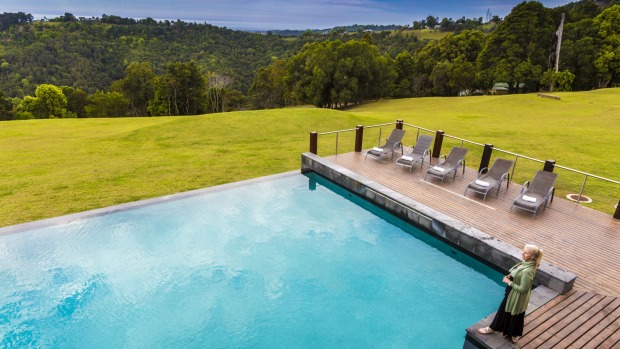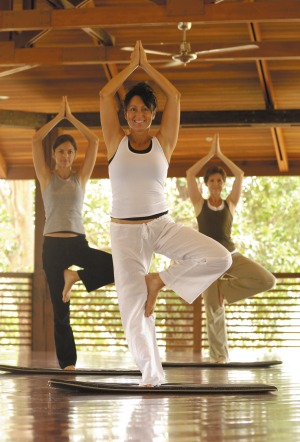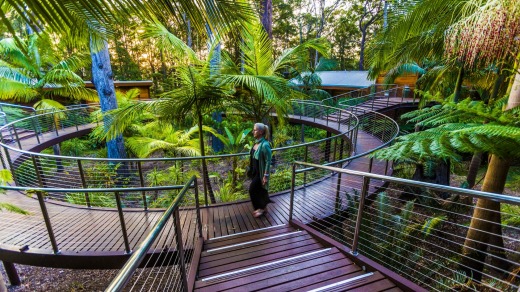
Sitting uncomfortably, at a table of strangers, talk turns to why we're here.
The setting is Gwinganna in the Gold Coast hinterland, arguably Australia's best lifestyle retreat.
There's an awkward pause, as she summons the strength to say what's in her heart: "I lost my son." We fall silent, followed by a stumble of sorrys. No one pries with words like how, when, where or why.

But as we share our stories, it becomes clear that tragedy pierces this paradise: one woman has a terminal illness; a man is mourning the loss of his wife. It makes me wonder: is this a new type of family travel? With the fragmentation of the family unit, we seek out places like this to deal with trauma.
Back in the 1980s, health retreats were all about losing weight and looking great. Now, with an ageing population, wellness tourism centres those managing a terminal illness, loss of a loved one, or mental health issues. This trend is worth almost $500 billion globally, rising at about 10 per cent each year.
As one marketing guru at our table suggests sardonically, "All you have to do is take a couple of photos of a lotus and a waterfall, publish it in a book, and sell it at spas around the world. Suddenly, you're a millionaire!" We ponder this in our quiet, luxurious cabin that night.

I'm here with a dear friend who's been diagnosed with breast cancer. The weekend is a whirl of boxing, fit-ball and yoga classes, serene bushwalks, and deep meditation.
At the largest spa in the Southern Hemisphere the treatments are superb, from organic facials using "an alchemy of vitamins, minerals and amino acids" to the esoteric Spirit of Sound, which includes "live percussion with drums and rainsticks". (There's also rocupuncture: presumably pins poked into you while listening to Nirvana.*) Nutrition lectures are interesting and enlightening (who knew we should chew each mouthful 100 times?) and the meals, hearty and healthy.
But can two or three days result in long-term change? Believe it or not, this cynical old journo says, "yes".
There's something special about the comfort of strangers.
During the weekend we bond with each other, supported by trained staff, to create an ecosystem of nurturing within a natural environment. Being away from the city, with no electronic devices, is therapeutic in itself.
Gwinganna is a place of healing. The name, given by the Kombumerri people who once lived there, means "look out".
The view, stretching all the way to the coast, is spectacular. But I think it means more than that: look out for each other; look out for your health; and look out for your family.
Now, at home, I'm cooking healthier meals, increasing our physical activity, and trying to be "in the moment" with the kids. (That last one is challenging, I must admit.) These are important pillars; ones I will never forget. And I will always remember that lovely woman, grieving the death of her dear son. I hope she found some small comfort, in the company of strangers.
*Actually, all the treatments are excellent. And rocupuncture is, "subtle Japanese style acupuncture… while heated basalt stones from the Atlantic Coast of Ireland are used to calm and restore the nervous system". I feel calmer already.
See also: The health retreat where 'no' is the answer